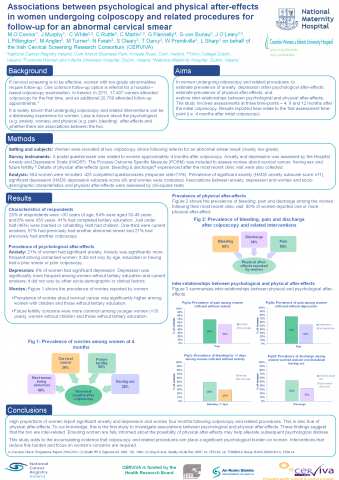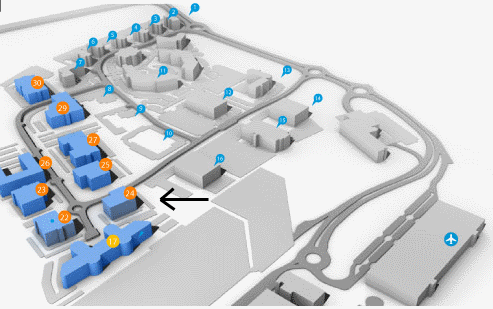Current Size: 100%
Associations between psychological and physical after-effects in women undergoing colposcopy and related procedures for follow-up for an abnormal cervical smear
Associations Between Psychological And Physical After-Effects In Women Undergoing Colposcopy And Related Procedures For Follow-up For An Abnormal Cervical Smear
Background: If cervical screening is to be effective, women with abnormalities on smear tests require follow-up. One follow-up option is a colposcopy examination. It is known that undergoing colposcopy and related procedures, such as biopsy/treatment, can be distressing for women. Less is known about the psychological and physical after-effects and whether there are associations between the two. We investigated prevalence of women’s psychological and physical after-effects following colposcopy and related procedures and inter-relationships between these.
Methods: Women referred for colposcopy following an abnormal smear result completed questionnaires 4 months following their initial colposcopy at two hospitals in Ireland. Anxiety and depression was assessed using the Hospital Anxiety and Depression Scale (HADS; significantly anxiety, HADS subscale score ≥11; significant depression, HADS subscale score ≥8). Specific worries (next smear being abnormal, future fertility worries and concerns about cervical cancer) were measured using the Process Outcome Specific Measure. Details of physical after-effects (pain, bleeding and discharge) experienced following colposcopy and related procedures were collected.
Results: 425 of 584 women completed questionnaires (response rate=73%). Prevalence of clinically significant anxiety and depression was 21% and 8% respectively. 69% were worried about their next smear being abnormal, 56% had concerns about future fertility and 36% had worries about cervical cancer. The reported prevalence of pain, bleeding and discharge following colposcopy and related procedures was 56%, 65% and 38%, respectively. Overall, 80% of women reported one or more physical after-effect. Women with significant anxiety were more likely to report pain or have bleeding for >7 days. Women with significant depression were more likely to report having experienced moderate/severe pain.
Conclusion: High proportions of women report anxiety and worries 4-months following colposcopy and related procedures. Similarly, high proportions report physical after-effects. To our knowledge, this is the first study to show that there are inter-relationships between these after-effects.
Research implications: These findings suggest that ensuring that women are fully informed about the likelihood of physical after-effects may help to minimise anxiety: research is required to determine whether this is the case.
Clinical implications: Clinicians and nurses need to be fully aware of the psychological and physical after-effects experienced by women following colposcopy and related procedures, so that they can provide support, reassurance or advice if required by women.
Acknowledgement of funding: This research was funded by the Health Research Board, Ireland.






